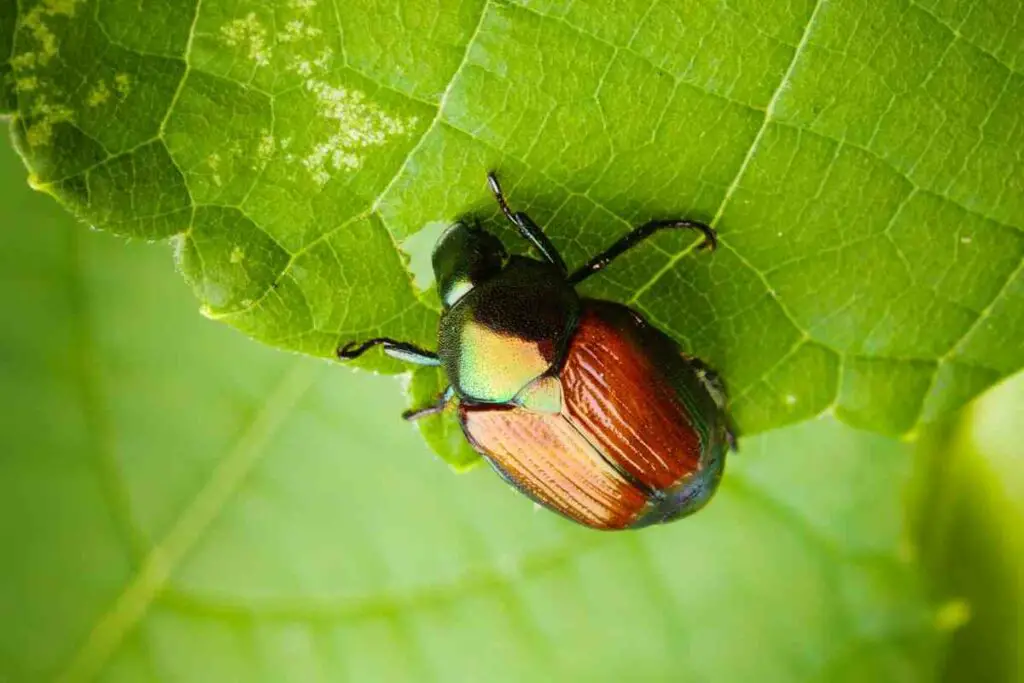If you’re looking to cultivate a community of beneficial insects in your organic garden, consider giving some of these 7 plants a try. Each one is known to possess the qualities necessary to attract beneficial insects:
- Yarrow
- Dill
- Cosmos
- Sunflower
- Shasta daisy
- Black-eyed Susans
- Buckwheat
In the below article, we’ll get into why these plants are helpful, what beneficial insects they’ll attract, and how to get started growing them.

Table of Contents
What Insects Will These Plants Attract?
Having some of these plants in your organic garden will help attract some of the following beneficial insects:
Lacewings
These insects are known to feel on aphids, which can harm your plants. They do most of this work in their larvae stage.
In addition to aphids, they are also known to eat mites, and other small insects as well as insect eggs.
Ladybirds
Like lacewings, ladybirds eat more small insects in their larvae stage than in their adult stage. You can identify ladybird lava by clustered yellowish eggs laid on the bottom side of leaves.
Hoverflies
These insects resemble bees, but they don’t sting. To prey on aphids and other pests, they stand on the hind legs and catch them.
Parasitic mini-wasps
These wasps don’t sting like their more commonly known counterpart. Instead, the females use their “stingers” to lay eggs in the bodies of insect pests.
When the eggs hatch, the larvae feed on the pest insects from the inside.
Damsel bugs
These bugs eat aphids, grasshoppers, and small caterpillars.
What Attracts Beneficial Insects To These Plants?
There are a few factors that go into what plants these insects prefer.
The more easily available the nectar, the more attractive the plant is to the insect.
Having a variety of blooming periods in your garden is ideal for making sure there is pollen and nectar to attract these insects at all times. Plant diversity is integral to maximum benefit!
What Insects Are Considered Beneficial To An Organic Garden?
Each of the above-noted insects can be beneficial to your organic garden in terms of pest control.
Insects such as aphids, slugs, and mites can cause harm to your garden. The use of these plants in attracting predatory insects is nature’s pest control.
Will Beneficial Insects Keep Harmful Insects Out Of Your Garden?
A large part of these insects’ benefits come from the fact that they will prey on harmful insects. Perhaps not in each life stage, but each of the above-noted insects as well as others will be helpful to your garden.

What Harmful Insects Will These Beneficials Prey On?
There are several pest insects that you don’t want to have in your garden, such as:
Boxelder bug
These pests try to make their way into your home, but they will start their endeavors in your garden. They lay their eggs in maple trees and will shelter in your garden en route to your home.
Mealybug
Mealybugs gather in large groups on stems or leaves. They will suck the sap from your plants, weakening it and possibly killing the plant (though this is rarer in mature plants).
Azalea lace bug
They pierce leaves and consume the chlorophyll from them. This process will result in yellow dots on the tops of the leaves, and soon the foliage will turn white, which will indicate the plant will soon die.
Tomato hornworm, corn earworm, and cabbage worms
These worms will not only eat away at your garden, but their feces will contaminate what they don’t have for dinner. They will eat green fruit, eat through kernels of corn, and leave moist cavities behind when they’ve had access to tomatoes.
The cabbage worms will do the most damage to cauliflower and broccoli, by eating from their heads.
Why Do You Want Insects In Your Garden At All?
Insects are a necessary part of any ecosystem, particularly agricultural systems.
We require insects like bees, and butterflies to pollinate our gardens. Losing this process would be fatal to plant life as it would prevent the plants from reproducing.
Attracting these insects can also aid in their reproductive routine. Maybe beneficial species of butterfly are in drastic decline.
Will These Plants Keep Aphids Away?
On their own, they won’t deter pest insects. However, their purpose is to attract those predatory insects that do. Therein lies their benefit.
When Should These Be Planted?
Every plant has a season. Knowing when to start the planting process for each one is key to a healthy garden. Having a variety of these will keep your garden attracting beneficial insects and providing nectar and pollen year-round.
For the 7 plants recommended herein, please see the following information on their lifespan, and the best time to sow:
| Plant | Lifespan | When to plant? | Difficulty level |
| Yarrow | Perennial | 8-10 weeks after the last frost | Easy |
| Dill | Perennial | Late spring/summer | Easy |
| Cosmos | Annual | After the last frost | Very easy |
| Sunflower | Annual or Perennial | Mid-April to mid-May | Easy |
| Shasta daisy | Perennial | May or mid-August to early September | Easy |
| Buckwheat | Annual | 2-4 weeks after the last frost, until the end of August | Easy |
| Black-eyed Susans | Annual or Perennial | March to May | Easy |
Do I Need Beneficial Insects When I Could Use An Organic Pesticide?
It is important to note that a pesticide being organic doesn’t automatically mean it’s good for the environment or your garden. These pesticides can still be harmful, and they will kill beneficial and harmful insects alike.
The use of pesticides should generally be avoided. Pollinators could be put in danger if these are used in your garden.
Besides Plants, What Else Can I Do To Attract More Beneficial Insects?
Having a birdbath or a water fountain near your garden can also attract many beneficial insects. These are great natural options, as we want to be sure to avoid the drastic use of pesticides to keep our organic garden healthy. As we noted previously, pesticides can also kill beneficial insects, and we don’t want that!













